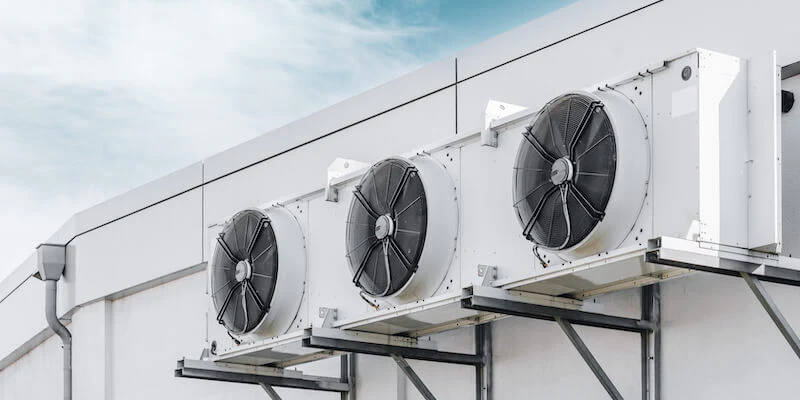Climate change is one of the most pressing issues facing our world today, and reducing our energy consumption is a key component in combating it. Air conditioning, while a vital part of modern life, has in recent years been seen as a significant contributor to energy use and the resulting environmental impact. For years, Europe has been leading the fight against climate change with strict regulations and initiatives being introduced to bring countries and citizens in line with sustainability goals. One of the latest initiatives, dubbed “Operation Thermostat”, is an initiative that aims to reduce energy consumption by restricting the use of air conditioning (AC) in public buildings, including schools.
Why Operation Thermostat?
Air conditioning is a major contributor to energy consumption, accounting for a significant portion of electricity use in buildings. It has even been found that 33% of the world’s energy consumption is related to space cooling and heating. In many cases, air conditioning is used excessively, even in relatively mild weather conditions. This overuse leads to an unnecessary waste of energy and an increase in greenhouse gas emissions, exacerbating the effects of climate change. Another factor compounding the energy situation is the ongoing Russia-Ukraine war which has sent gas prices soaring, creating an energy crisis, notably in Europe. The initiative was first introduced in Italy in May 2022, but has gained momentum in other European countries such as Spain, France, Germany, Ireland, Greece, and others.
Operation Thermostat was launched to address this crisis by promoting the efficient use of air conditioning. The initiative sets limits on heating and cooling in public buildings to promote the optimization of AC use. While limits vary by country, in Italy for example, public buildings are required to avoid running their air conditioning units above 19°C in the winter and below 27°C in the summer. By doing so, the initiative aims to reduce energy consumption, decrease greenhouse gas emissions, and curtail the continents reliance on Russian gas. In Italy, they expect the new rules could save between two to four billion cubic metres of gas in 2022 – roughly the same amount as the average yearly gas consumption of 2.7 million homes.
While some of the current initiatives are slated to expire in 2024, most experts expect that they will be indefinitely extended as part of Europe’s push to become more sustainable.
Challenges of Operation Thermostat
While Operation Thermostat offers many benefits, it also faces some challenges. It is known that policing and enforcing these rules will be difficult and it isn’t yet known exactly how this will be done. But while varying by country, the punishment for exceeding the limits is expected to come with a fine in the hundreds of euros. Taking Italy as an example again, those who do not comply can be handed fines from €500 to €3,000.
And while there have been discussions regarding extending the initiative to private homes, few foresee this happening. But policymakers hope that putting these policies in place in public spaces will motivate citizens to take similar steps in their own homes.
How can building managers abide by these new limits?
Sticking within these new limits can be difficult, especially if a manager isn’t always on site. Luckily, there are many options on the market for smart thermostat and smart AC controllers that can assist operation and building managers to keep within the temperature limits. These devices can not only keep within the range, but can completely optimize AC usage to minimize energy waste, reduce energy bills, and make these operations more sustainable.
Conclusion
Operation Thermostat is an important initiative that aims to reduce energy consumption and greenhouse gas emissions by promoting efficient use of air conditioning. By encouraging individuals and businesses to reduce their AC use, the initiative can help to save energy, reduce greenhouse gas emissions, and diversify Europe’s energy reliance. While there are some challenges to implementing Operation Thermostat, educating the public about the benefits of efficient AC use can help to overcome these challenges and ensure its success.
If your building is looking to comply with Operation Thermostat or if you just want to optimize your AC management, talk to our team to see how Sensibo’s smart AC controllers can give you complete control over your HVAC ecosystem.



